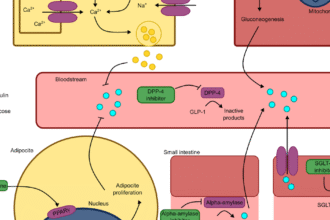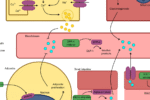Freud initially said he never read Nietzsche’s work, only later admitting to having read it much later in his life. However, he clearly did Freud lived in a time which was heavily influence by ideas from Schopenhauer, Nietzsche, but more broadly traditions dating back to the 14th century. As Eva Cybulska notes in Freud’s burden of debt to Nietzsche and Schopenhauer certain ideas such as the unconscious, had been entering into the zeitgeist of the 19th century with Shakespeare, and German Romanticism. In Nietzsche’s case, concepts are very similar to that of Freud. For instance, the unconscious mind, repression and sublimation, projection and cathartic and complex dreams are all present in both Nietzschean and Freudian works. Nietzsche released his publications 10 to 30 years before Freud became active in his writing. So the direction is clearly Freud was influenced by Nietzsche, not the other way round.
Freud was a neurologist from Austria, and Jewish. He later became a psychoanalyst. A neurologist is someone who practices medicine to support people living with disorders of the brain and nervous system. A psychoanalyst is a person who provides therapy based on uncovering unconscious psychological and mental processes. Nietzsche was a philologist from Germany who later became a philosopher. A philologist is someone studying oral and historical language (includes text and literary criticism, history and linguistics). A philosopher is someone who studies questions about existence and reason and language using rational and critical approaches.
Freud had to leave his Austrian home and clinic to escape Nazi prosecution when Germany annexed Austria. In comparison, Nietzsche was a German man Philosopher who’s work was posthumously co-opted by Nazis (the idea of the Übermensch), which resulted in reputational damage for the author following WW2. Freud was a highly educated man, who travelled and read a lot. Supposedly Freud bought Nietzsche’s works upon the year of his death in 1890. Potentially Freud has read Nietzsche before 1938 (when he had to evacuate from Austria due to Nazism). He was perhaps then affected and inspired by some of Nietzsche’s ideas whilst rejecting those which were later co-opted by the likes of Hitler and Mussolini. Then after 1938, he likely denied having read Nietzsche due to the reputational damage, with Nietzsche now representing the oppressors.
Another point to note is that whilst Freud focused on understanding illness, their views of the topic are very different. Nietzsche focused on morality as a consequence of our nature, as opposed to the more traditional deontological view that morality was ordained by God. Moreover, his main concern was how people could overcome Nihilism in the face of the sudden untethering of the world from religious ideas, in the wake of the enlightenment. He would seek to uncover complex activities (unconscious ones) for the basis for what he refers to as “power”; a poetic distillation of our ability to forge values from nothingness. Freud also felt that self is unknown and suggests that psychoanalysis done with someone else (a therapist in consulting room) allows to access mental processes. For Nietzsche, removing yourself from society will lead to better self-understanding, as self-mastery was a way to tame our unconscious desires but also to reframe them. For Freud, however, relationships with others (transference in psychoanalyst lingo) are important to support people to overcome loneliness.
It is interesting how Nietzsche advocates for the rigour of sciences, considering the introspection approach is very subjective. Nietzsche seems to posit that removing ourselves from society allows for more objectivity, because seeking to understand the origins of morality, the values that influence society (Judaeo-Christian values in particular). Nietzsche, in essence, suggests that philosophy provides the goals of science about research for testing the values and rules; not just of to seek an ideal world, but to identify the influences that may corrupt our scientific understanding. Take animal consciousness, as an example. Only until recently, has animal consciousness been taken seriously, but the underlying dogma preventing scientists from immediately accepting that we are not special in our ability to experience, ultimately stems from the Judaeo-Christian idea that we have something “special” bestowed upon us – that we are “like God”.
Whilst not finding proponents in the Jewish Freud, German Wundt (“father of experimental psychology”) was highly interested in introspection. Wundt was interested in social psychology, cognitive psychology and philosophy. Wundt was the first person to talk have a psychology lab and view psychology as a science. Wundt created introspection as an objective tool, where subjective experiences are reflected on by individual in a standardised way. Participants were trained to analyse their thoughts and sensations in relation to stimuli produced a highly controlled lab setting. Therefore, it appeals that Wundt took the idea behind removing societal and other influences from Nietzsche and turned introspection into a scientific method. Introspection remains subjective and individual, but it was operationalised by Wundt, following the goal set by philosopher Nietzsche.
Interestingly, Wundt became active as a psychologist from 1862 onwards, which was when Nietzsche was only 17 years old. Nietzsche’s view then that rational thinking comes after instincts is perhaps influenced by Wundt’s scientific approach to uncovering mental processes and Wundt’s position that irrational factors shape thinking and cognition. Nietzsche worked as a philosopher from the 1870s onwards, which is when Wundt established the first academic journal about psychological research (called Philosophical studies, running from 1883 to 1903). Nietzsche’s important works came out during that period such as Gay Science (1882; 1887), Thus Spoke Zarathustra (1883), Beyond Good and Evil (1886), On the Genealogy of Morality (1887), Twilight of the Idols (1888) And Ecce Homo (1908). So it is likely that Wundt and Nietzsche were potentially influenced by each other’s ideas.
Wundt probably was into Nietzsche’s misunderstood Übermensch concept, having written political essays which suggested German science was superior (around the start of WW1). While there are no sources outlining this influence, the Übermensch was understood in Wundt’s time to be a person (typically a man) who was superior in a eugenic sense. What Nietzsche intended was instead a person who can look at the meaninglessness of life, embracing it and turning it into value that was fulfilling. The Übermensch, to Nietzsche, was the person who could look into the abyss and not be consumed by it; they could fight monsters without being turned into one. In a scientific context, specifically the eugenic movement, this misunderstanding from the corruption of his idea led to a monstrous movement which placed the value of human life below that of arbitrary ideas of racial purity.
Wundt was distanced from the eugenics movement as he championed a view opposite the empiricists. He was a logical positivist who emphasised experiential data (i.e., first-person, phenomenological data) over inductive reasoning. This approach would have strong connections to psychoanalysis as a whole, because it acknowledged that the scientific method at its base was unfit to tackle certain phenomena (like the mind). Freud, being a student of Hegel, was heavily influenced by phenomenological approaches, which at the time were considered both a science and a philosophical field of study.
Freud took influence from a range of thinkers, all of which are still being debated today. His contributions to his own field, but more importantly his timelessness in the fascination his work generates, is a testament to the long and winding road scientific enquiry has taken, and perhaps where it needs to go in the future.
Elizabeth Kaplunov, PhD is a chartered psychologist who evaluates projects about health technology for disabled and vulnerable people.








